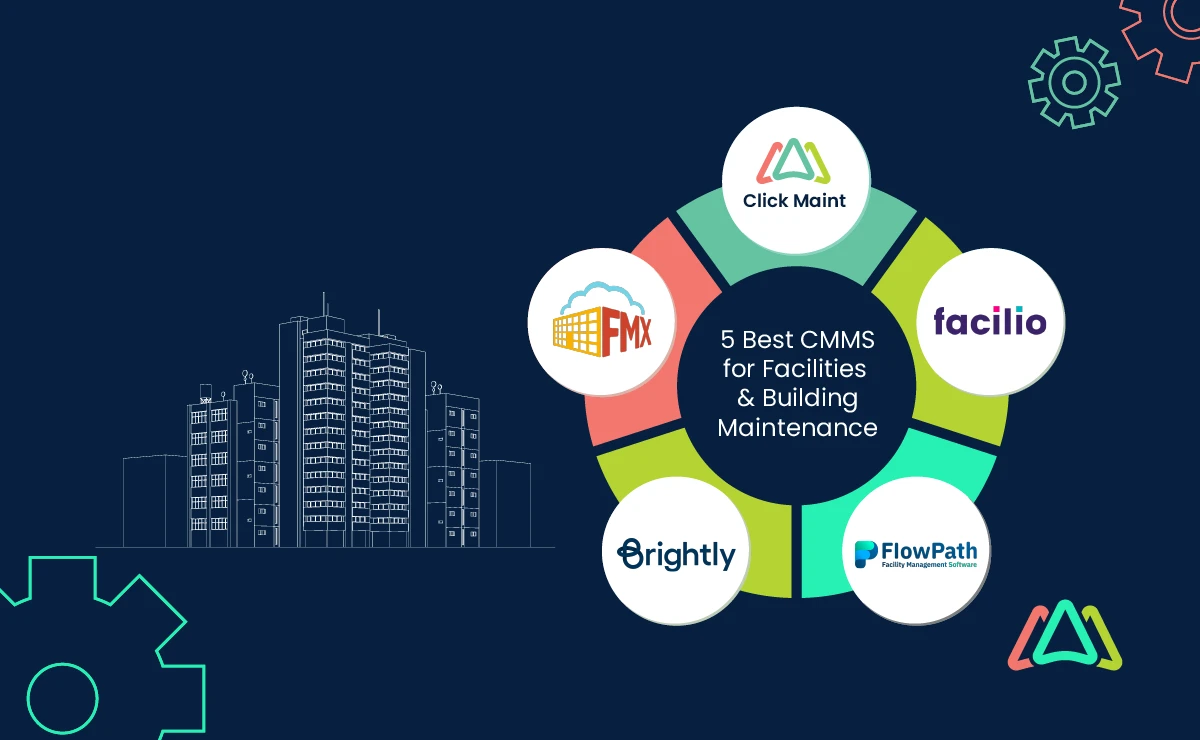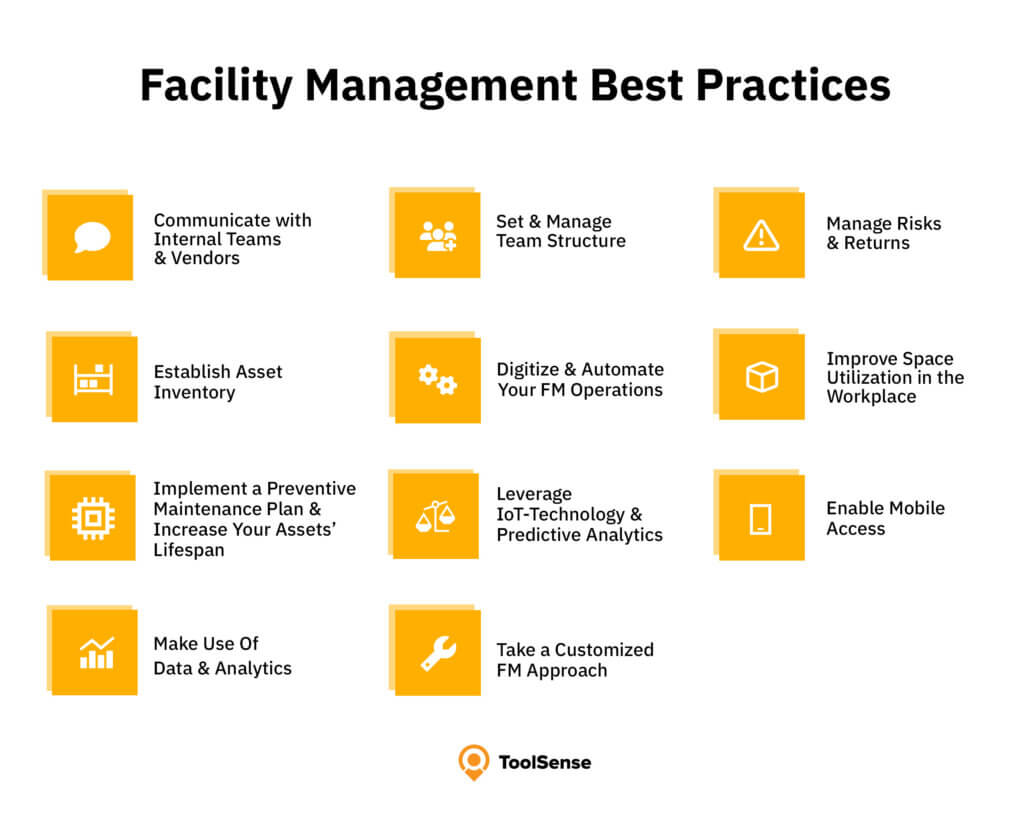The Role of Facility Management in Sustainable Procedures
The Role of Facility Management in Sustainable Procedures
Blog Article
Key Fads Forming the Future of Center Management in 2024
As we look in advance to 2024, the landscape of center administration is positioned for considerable change, driven by numerous key trends. The combination of clever structure innovations and a shift in the direction of data-driven decision-making guarantee to boost functional performance while focusing on sustainability in technique.
Smart Structure Technologies

Smart structure modern technologies encompass a broad array of systems, consisting of smart illumination, heating and cooling controls, and safety and security systems. By integrating these systems, facility supervisors can keep an eye on and change parameters in real-time, resulting in substantial decreases in energy waste and operational prices. As an example, smart sensors can find tenancy levels and adjust lighting and temperature as necessary, guaranteeing that power is just made use of when needed.
Moreover, these innovations promote improved information collection, allowing companies to track usage patterns and identify opportunities for further enhancements. The application of clever structure technologies not just adds to sustainability objectives however also creates much healthier workplace that can improve staff member productivity and contentment.
As we move into 2024, the fostering of wise building technologies will likely increase, showing a broader shift in the direction of even more smart, receptive, and lasting center monitoring techniques.
Data-Driven Decision Making
Increasingly, companies are leveraging data-driven choice making to improve center administration methods. By utilizing data analytics, center supervisors can acquire actionable understandings that considerably improve functional effectiveness and resource allotment. The integration of sophisticated modern technologies, such as IoT sensing units and real-time monitoring systems, enables the collection of vast amounts of data on building efficiency, occupancy prices, and power intake.
This wide range of info allows center managers to determine trends, predict maintenance requirements, and proactively address issues prior to they escalate. For example, predictive analytics can anticipate devices failings, decreasing downtime and repair work expenses. Furthermore, information visualization devices promote much better communication amongst stakeholders, making sure that informed choices are made collaboratively.
Furthermore, data-driven techniques improve strategic preparation by enabling facility supervisors to examine the performance of current techniques and make informed options regarding investments in modern technology or infrastructure. As organizations significantly prioritize operational quality, data-driven choice production is poised to come to be a keystone of effective center management methods in 2024 and past. Eventually, the capacity to utilize data effectively will encourage organizations to produce much more efficient, effective, and durable centers.
Sustainability and Eco-friendly Practices
The focus on data-driven choice look at these guys making normally aligns with the growing emphasis on sustainability and environment-friendly methods within facility administration. As companies significantly focus on ecological responsibility, center supervisors are leveraging analytics to enhance source usage, lower waste, and reduce carbon footprints. This tactical strategy enables the combination of energy-efficient systems, such as LED lights, clever heating and cooling controls, and sustainable energy sources right into center operations.
Moreover, the implementation of sustainable techniques expands past energy intake. Facility managers are promoting and adopting environmentally friendly materials reusing initiatives to create a circular economic climate within their facilities. This not just boosts the ecological account of the company yet also cultivates a society of sustainability amongst employees.
Conformity with ecological regulations is another vital aspect driving the adoption of environment-friendly practices. By making use of information analytics, facility managers can check compliance metrics and identify areas for enhancement, making certain adherence to worldwide and regional sustainability requirements.
Hybrid Job Designs
A considerable change towards hybrid job designs is improving the landscape of facility administration in 2024. This paradigm integrates remote and in-office job, requiring a reevaluation of space usage, source appropriation, and worker engagement approaches. Organizations are increasingly identifying the importance of flexible work spaces that provide to varied needs and choices.
Center managers need to adjust by carrying out flexible workplace designs that sustain collective efforts while giving locations for focused work. This consists of the combination of technology to assist in seamless interaction and partnership among remote and in-office staff members. Smart building remedies, outfitted with analytics and sensing units, enable real-time tracking of space usage, making it possible for organizations to maximize their environments successfully.
Additionally, hybrid work versions stress the requirement for reliable center administration that focuses on worker experience. In essence, the hybrid job model is revolutionizing facility management, encouraging a proactive approach to meet the advancing needs of the workforce.
Improved Occupant Health
As organizations welcome hybrid job models, a heightened focus on owner health is ending up informative post being integral to center administration methods. Facility Management. This change recognizes that a pleased and healthy and balanced labor force straight impacts performance and retention rates. Center supervisors are currently focusing on settings that advertise physical and psychological wellness, integrating aspects such as all-natural lighting, biophilic style, and obtainable wellness sources

Technology plays a vital role in this advancement. Smart building systems can keep track of environmental factors and change setups in real-time, making certain optimum comfort levels - Facility Management. Moreover, responses devices, such as occupancy sensing units and worker surveys, enable center managers to consistently improve wellness campaigns based upon passenger needs.
Conclusion
In 2024, the future of center administration will be substantially affected by the integration of smart building modern technologies and data-driven decision-making, promoting improved functional effectiveness. These patterns collectively underscore the evolving landscape of facility monitoring in response to modern obstacles and possibilities.
Facility managers are promoting and embracing green products reusing initiatives to develop a circular economy within their centers.A considerable change towards hybrid work versions is improving the landscape of center management in 2024.Moreover, crossbreed work designs stress the need for efficient facility monitoring that prioritizes staff member experience.As organizations welcome hybrid work versions, an increased emphasis on owner health is ending up being integral to center management strategies.In 2024, the future of center administration will be significantly affected by the integration of clever structure innovations and this article data-driven decision-making, cultivating improved functional effectiveness.
Report this page